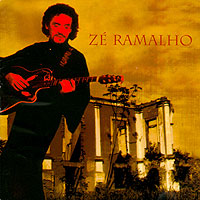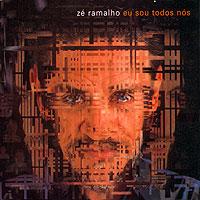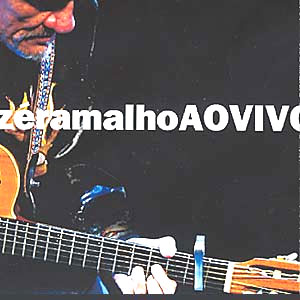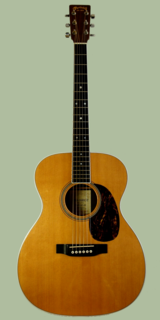
A Peleja do Diabo com o Dono do Céu is the second solo album by Brazilian musician Zé Ramalho. It was released in 1979 and featured one of his greatest hits, Admirável Gado Novo.

A Terceira Lâmina is the fourth solo album by Brazilian musician Zé Ramalho. It was released in 1981 and it helped increase his popularity. As its two predecessors, the album mixes Northeast Brazil and rock influences.

De Gosto de Água e de Amigos is the eighth solo album by Brazilian musician Zé Ramalho. It was released in 1985. The Golden Boys, a famous Jovem Guarda band, made some guest appearances in several tracks of the album.

Décimas de um Cantador is the tenth solo album by Brazilian musician Zé Ramalho. It was released in 1987.

Frevoador is the twelfth solo album by Brazilian musician Zé Ramalho. It was released in 1992, after a four-year gap with no albums. When promoting his next album Cidades e Lendas, he said he wasn't satisfied with the final result of Frevoador, suggesting the repertoire and the session musicians weren't the right ones.

Cidades e Lendas is the thirteenth solo album by Brazilian musician Zé Ramalho. It was released in 1996, after another four-year gap with no albums. It was released in a show at TUCA, São Paulo, around the time when his hit "Admirável Gado Novo" was featured at the soundtrack of Rede Globo's telenovela O Rei do Gado. When comparing this work with his previous effort, Frevoador, Ramalho said he was more satisfied this time because he had more time "to choose the best repertoire and invite the right people".

Antologia Acústica is an acoustic compilation album by Brazilian solo artist Zé Ramalho. It was released in 1997, same year in which he released a 3-CD box set to celebrate 20 years of career. It went double-platinum and triple-platinum in 2005, with more than 750.000 copies sold.

Eu Sou Todos Nós is the fourteenth studio album by Brazilian solo artist Zé Ramalho. It was released in 1998. The album cover is a composite of pictures of several people, forming the face of Zé Ramalho, which is an allusion to the album's title, "Eu Sou Todos Nós", which translates as "I Am All Of Us". It sold more than 100,000 copies in the first month and it had reached the 190,000 mark by April of the next year.

Nação Nordestina is the fifteenth studio album and first double album by Brazilian solo artist Zé Ramalho. It was released in 2000. The cover art of the album is clearly based on The Beatles' Sgt. Pepper's Lonely Hearts Club Band. It is a concept album which tells the history of a traveller exploring the Northeastern Brazil.

Zé Ramalho Canta Raul Seixas is the sixteenth album by Brazilian solo artist Zé Ramalho. It is a tribute album to another well-known Brazilian guitarist, Raul Seixas. It was released in 2001. Zé wanted to record an album with Raul when he was alive. More than a decade after his death, he decided to record this tribute album, but he faced opposition from the writer Paulo Coelho, who refused to grant permission for Zé Ramalho to record the songs he had composed with Raul. Zé ended up recording only songs Raul had composed alone. Zé later stated, referring to Coelho's refusal: "It was rude, with absolutely no elegance. But there's no way for someone to stop me."

O Gosto da Criação is the seventeenth album by Brazilian solo artist Zé Ramalho. It was released in 2002.

Estação Brasil is a compilation album by Brazilian solo artist Zé Ramalho, containing songs by him, songs by various Brazilian artists and one new song. It was released in 2003.

Zé Ramalho ao vivo is the first live album by Brazilian solo artist Zé Ramalho, apart from his live recorded performances with other artists. It was released in 2005.

Parceria dos Viajantes is the eighteenth album by Brazilian solo artist Zé Ramalho. It was released in 2007. the album features several famous Brazilian artists, like Zélia Duncan, Daniela Mercury and Pitty, as well as American singer-songwriter Alana Marie.

Zé Ramalho da Paraíba is a compilation of rare songs by Brazilian solo artist Zé Ramalho in 2008. Most of the tracks were recorded live, in a time they were still unknown. Avôhai, for example, was performed only three days after his death, but became a hit single years after.

Zé Ramalho Canta Bob Dylan – Tá Tudo Mudando is the second tribute album by Brazilian singer-songwriter Zé Ramalho, released in 2008. This time, he pays an homage to Bob Dylan, whose "Knockin' on Heaven's Door" had already been covered by him. Most of the songs' lyrics were almost literally rewritten to Portuguese. The album cover is a reference to Dylan's known promotional film clip for the 1965 song "Subterranean Homesick Blues". "O Vento Vai Responder", a cover of "Blowin' in the Wind", was used in the soundtrack of the Rede Globo telenovela, Caminho das Índias.

Zé Ramalho canta Luiz Gonzaga is the third tribute album by Brazilian solo artist Zé Ramalho. This time, he pays a tribute to his influence Luiz Gonzaga, one of the most well-known artist of the forró music.

Hubris I & II is the debut solo studio album from Brazilian guitarist Andreas Kisser. It was released on August 25, 2009 through Mascot Records.

Sinais dos Tempos is the nineteenth album by Brazilian solo artist Zé Ramalho, the first released through his new and own record label, Avôhai Music, and also the first after four consecutive tribute albums.
























